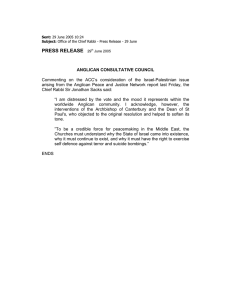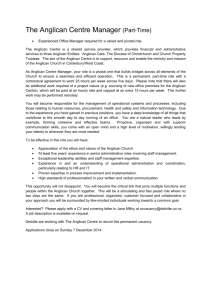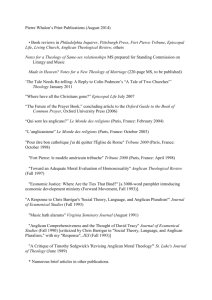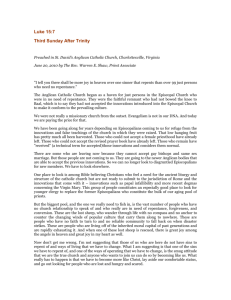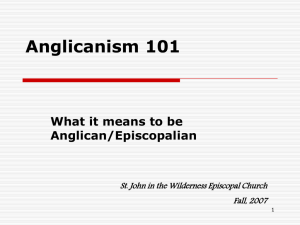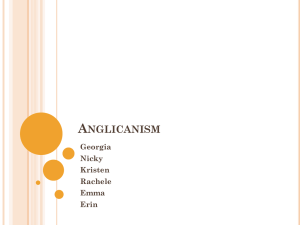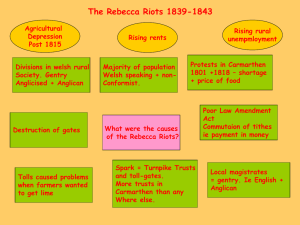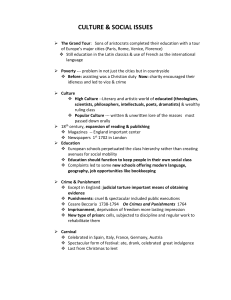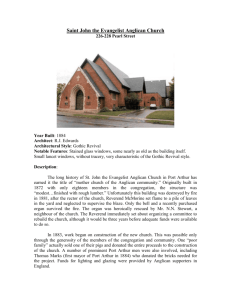DISCLOSURE OF RISK BY A CHILD/YOUNG PERSON
advertisement
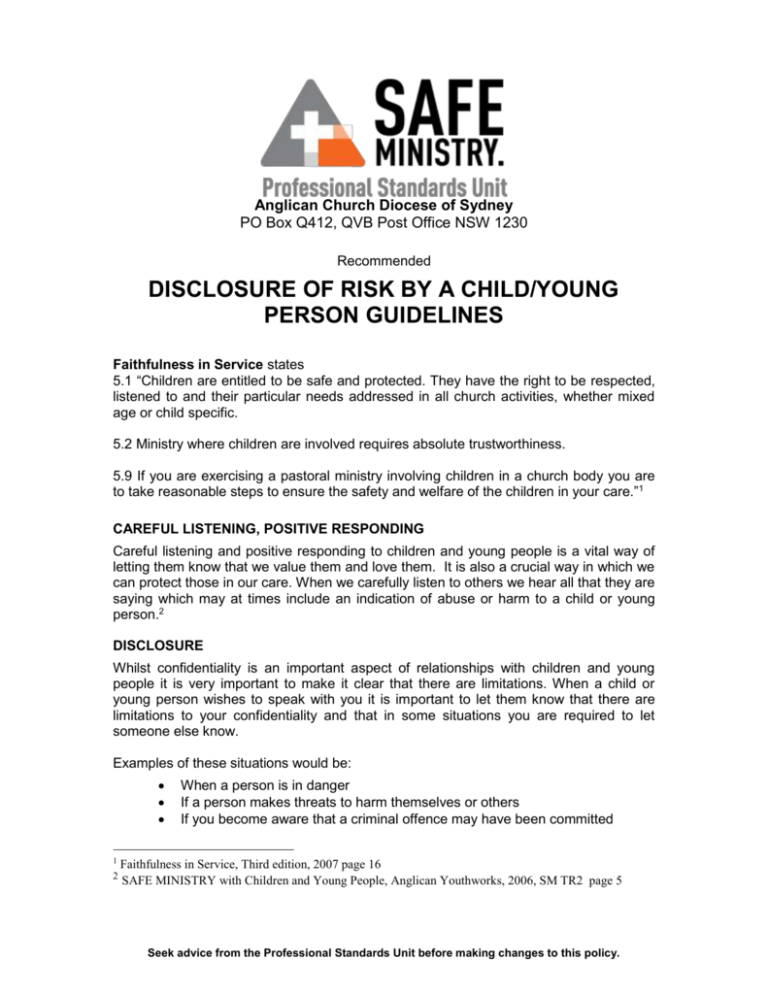
Anglican Church Diocese of Sydney PO Box Q412, QVB Post Office NSW 1230 Recommended DISCLOSURE OF RISK BY A CHILD/YOUNG PERSON GUIDELINES Faithfulness in Service states 5.1 “Children are entitled to be safe and protected. They have the right to be respected, listened to and their particular needs addressed in all church activities, whether mixed age or child specific. 5.2 Ministry where children are involved requires absolute trustworthiness. 5.9 If you are exercising a pastoral ministry involving children in a church body you are to take reasonable steps to ensure the safety and welfare of the children in your care.”1 CAREFUL LISTENING, POSITIVE RESPONDING Careful listening and positive responding to children and young people is a vital way of letting them know that we value them and love them. It is also a crucial way in which we can protect those in our care. When we carefully listen to others we hear all that they are saying which may at times include an indication of abuse or harm to a child or young person.2 DISCLOSURE Whilst confidentiality is an important aspect of relationships with children and young people it is very important to make it clear that there are limitations. When a child or young person wishes to speak with you it is important to let them know that there are limitations to your confidentiality and that in some situations you are required to let someone else know. Examples of these situations would be: 1 2 When a person is in danger If a person makes threats to harm themselves or others If you become aware that a criminal offence may have been committed Faithfulness in Service, Third edition, 2007 page 16 SAFE MINISTRY with Children and Young People, Anglican Youthworks, 2006, SM TR2 page 5 Seek advice from the Professional Standards Unit before making changes to this policy. A church worker has a responsibility to respond to this information and this may include breaching their confidence. WHAT TO DO What to do if a child or young person discloses something that causes you concern: Do stay calm and listen to what you are being told. Do not be dismissive of what they have told you, even if it is someone you know (“That can’t be true!”). Do convey that you are hearing what they are saying (while avoiding strong reactions to what they are revealing). Don’t reflect back to a child/young person what they are saying. A child’s/young person’s testimony can easily be discredited if it can be shown that another person has made suggestions to them, which could unintentionally happen when reflecting their story back to them. Don’t promise not to tell. Explain that you may be required to report the matter, but only to those who need to know. There can be no secrets with some serious issues. Don’t ask any more questions than necessary to be clear about what the child/young person is telling you. Any questions should be simple ‘what, ‘how’, or ‘where’ questions and not questions that suggest an answer, eg “were you in the shed?” It is important that the number of times the child/young person recounts the story is kept to a minimum. Remember: You do not have to decide if the child/young person is telling the truth, nor do you have to prove what has been disclosed. As soon as possible after the disclosure write a record of what the child said and what you said. Include such information as details of the individual, time and place. Don’t promise to resolve the situation. You cannot guarantee to do this. WHO TO INFORM requires all youth leaders and children’s leaders to notify of all situations as soon as possible if : a person is in danger, a person makes threats to harm themselves or others, you become aware that a criminal offence may have been committed. Do not discuss the matter with anyone else. If the alleged perpetrator is the above named person, then contact an appointed Contact Person from the Anglican Abuse Report Line on 1800 774 945. DoCS If you have a reasonable suspicion that there is a child (under 16 years old) at risk of harm it should be reported, either by yourself or to the Department of Community Services on 132 111 Seek advice from the Professional Standards Unit before making changes to this policy. POLICE If you have become aware that a criminal offence may have been committed that involves a person over the age of 16 years, you should report that to the local police at PROFESSIONAL STANDARDS UNIT In the context of Sydney Anglican churches, a Contact Person from the Anglican Abuse Report Line and the employer of the person against whom an allegation has been made (and/or the minister) may also have a need to know. A Contact Person can be reached on: 1800 774 945 or the Professional Standards Unit can be reached on: 9265 1514 (Director) 9265 1500 (Chaplain) They will be able to assist you as to who else may need to know about it and whether a report to DoCS , the police or the Professional Standards Unit should be made. SUPPORTING THE CHILD/YOUNG PERSON Reassure the child/young person that you are there to give them support, Talk with pastoral staff, if appropriate, about how to provide sustainable support, Don’t promise that you can deliver more than you can provide. Sometimes situations may arise where leaders feel out of their depth. Be aware of your limitations and understand that it may be more appropriate to refer children/youth to experts, such as doctors or counsellors. In that case Determine the wishes of the child/youth – do they want help? Are they able to make appropriate decisions about what is best for them? Determine the nature of the problem eg medical? Emotional? If you consider it is appropriate to refer the child/young person then contact their parents/guardians and discuss this with them – in most situations it will be the parents/guardians who will refer their child to a specialist. Our role is one of support for the child/young person and the parents/guardians. If you are unsure about who to suggest for referral, talk to Standards Unit on 9265 1500. or the Professional Seek advice from the Professional Standards Unit before making changes to this policy.
